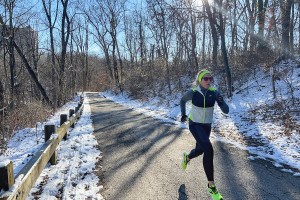Three Male Vitality Boosters
Yesterday we discussed the signs you (or your loved one) may be suffering from andropause, also known commonly as male menopause, in the post “The Disorder Doctors Miss.” Today we’ll be discussing the best possible ways to treat it. The good news is that many men can affect their testosterone levels through lifestyle. Of course, this also is the bad news for some, in that an unhealthy lifestyle can contribute to testosterone deficiency and other andropause-related problems.
Poor diet and too much stress can negatively affect testosterone levels, and a big belly can turn testosterone into estrogen. For men suffering from the signs and symptoms of andropause, the first line of defense is a set of three lifestyle modifications that are proven to help stave off testosterone deficiency and its associated effects.
Of course, before starting any lifestyle program it is important to first get a thorough exam by your physician and address any symptoms and concerns to make sure there is not a medical problem that needs to be addressed. Also discuss with your doctor all dietary changes and supplements you plan to take, to make sure that there is no interference with other medications you may be taking.
• Diet and Nutrition It often is difficult to motivate men to change their diets, even when educating them about risk factors of major illnesses like cancer and coronary artery disease. However, when men understand that a high-fat diet can decrease testosterone levels, a sudden willingness to consider dietary modifications enters the picture. And, when men learn that the midline tire their wives may complain about isn’t just an aesthetic issue, but actually that the fat acts like a gland, secreting enzymes that convert precious midlife testosterone into estrogen — causing feminizing effects, decreasing libido, and depleting energy — then the motivation for change really amps up. The bottom line is that midlife men need to minimize saturated fat intake and excess fat around the belly. One simple guideline is to minimize fatty animal products (e.g., red meat and dairy) and fried foods of any kind, and increase vegetables and whole grains. I usually recommend a couple supplements as well, such as omega-3 fatty acids and Peak for Him by Lucentia (available online or at the Jefferson pharmacy on 908 Walnut Street), which directly targets andropausal symptoms. A complete diet plan for men can be found in my book The Great Life Makeover (Harper-Collins).
• Stress Reduction High stress levels often lead to poor food choices and intake of too many calories. In addition, stress hormones can have a catabolic effect, meaning that your body may break down more muscle than fat to burn as energy, and this causes increased storage of fat. As body fat increases, the percentage of muscle and bone to fat decreases, not only making it harder to keep weight off but also increasing the risk of many diseases. Bottom line: find a way to de-stress! There are many techniques, and I favor those that teach you to both learn to cope better with stressors and also relieve the effects of stress in the body. My favorite is mindfulness-based stress reduction, which utilizes a combination of mindfulness meditation and Yoga techniques. It is a standardized program that is offered in eight-week blocks; see www.jeffersonhospital.org/cim for more details.
• Exercise The benefits of physical activity cannot be over emphasized. From decreasing risk of cancer to increasing circulation and blood flow (which means better sex and increased vitality), exercise is emerging as one of most important things we can do to combat the ills of aging. In addition, it is the perfect complement to the other two categories — diet and stress reduction — because it helps to reduce excess body fat and decreases stress levels. Because of the increasing scientific data on the benefits of exercise, our Center opened a personalized fitness facility near the Jefferson campus (1013 Chestnut Street) to help patients, staff, and anyone to get the physical fitness needed for a healthier life. If going to the gym isn’t your thing, and you don’t like group fitness activities, consider biking, canoeing, or just start with some brisk walks.
Read Better Energy, More Sex to find out if hormone replacement therapy is right for you.
Dr. Monti is Director of the Myrna Brind Center of Integrative Medicine at Thomas Jefferson University Hospital and the author of “The Great Life Makeover”. Read more about him here.



